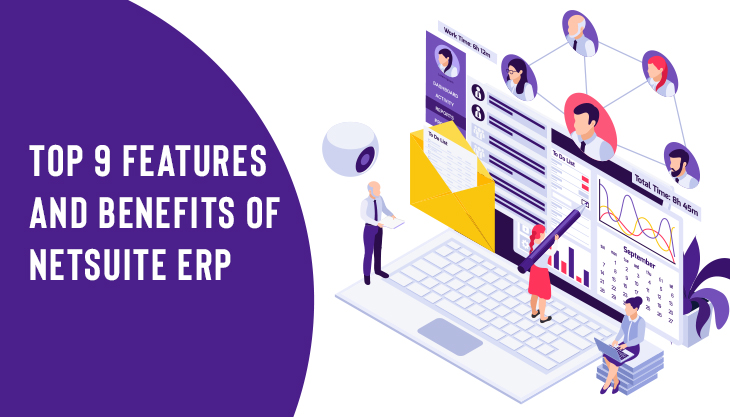Today’s enterprise resource planning (ERP) systems integrate and automate essential financial and operational functions and provide a trove of data insights from sources including general ledger (GL), accounts payable, accounts receivable, payroll and financial reporting. Modern ERP systems also help with inventory, order and supply chain management as well as procurement, production, distribution and fulfillment.
Companies that include human resource management (HRMS), customer relationship management (CRM) and ecommerce capabilities will see even greater benefits.
Understanding features of netsuite erp makes it clear why this software plays a pivotal role.
Here are a dozen capabilities to consider when evaluating ERP systems.
1. Integration
Data silos lead to inefficiency, missed opportunities and departments working at cross-purposes. The primary, and maybe most significant, benefit of ERP is a central view of essential financial, operational and business data that can be shared across the organization in near-real-time.
ERP systems provide the means to develop business intelligence by turning that data into reports and insights that a company can use to re-allocate resources or capitalize on new market opportunities, among other actions.
2. Automation
ERP provides the ability to automate repeatable business tasks, such as payroll, order processing, invoicing, reporting and more. Automation minimizes the time spent on manual data entry, reduces errors and lets employees focus on more value-added tasks.
The nature of an ERP system means that data entered by one user is available across the organization. So, for example, an inventory tracking module could automatically trigger a shipment and invoice when a certain SKU becomes available. That translates into more revenue and a better customer experience. Or, line-of-business executives could automatically receive up-to-date reports on cash flow and other metrics to inform decisions.
3. Data analysis
Using data more effectively is a perennial priority for CFOs and business leaders alike, as Brainyard’s Winter 2020 survey showed. The power of data analysis is enabling employees to gather a wide variety of information and spin it into actionable insights—on new business opportunities as well as ways to optimize current operations, reduce costs, spot fraud and better serve customers.
4. Reporting
Better reporting is almost as important to executives as more effective data usage. ERP reporting modules compile information about business operations into reports that empower stakeholders to make more informed decisions, enhance business processes and identify problem areas before the business suffers. Reports may include visual representations, such as charts, graphs and dashboards, hopefully revealing trends and patterns to improve business results.
5. Tracking and visibility
ERP platforms allow companies to track, surface and understand business metrics—a powerful feature. They do this by facilitating companywide access to near-real-time data, breaking down information silos and offering reporting and analysis for every aspect of business operations.
6. Accounting
ERP accounting features deliver the ability to track, store and analyze financial data, such as accounts payable (AP), accounts receivable (AR), general ledger (GL), budgets and forecasting. Systems may perform more advanced tasks such as tax management, fixed assets management, revenue recognition and multi-currency reconciliation.
Time is money, and month-end closes always take longer than CFOs would like. This functionality decreases the time it takes to reconcile and close out monthly financial statements. It’s critical for companies looking to move to continuous month-end closes.
7. Financial management
Financial management is a complex task that involves planning, organizing and determining the best use of funds for a business. Financial leaders must track and use financial data from all departments to make decisions about, for example, capital projects, funding sources, cash management and financial controls.
ERP systems assist finance teams with the management process by tracking, analyzing and reporting critical business data. In large, complex organizations, ERP systems are necessary tools for sound financial management.
8. Customer relationship management (CRM)
ERP systems with integrated CRM features bring customer relationship data into the mix, expanding the view of the business. All customer information—including contacts, order history, purchase orders and prospect status—is in a shared, easily accessible database.
CRM systems enable companies to automate processes like filling out POs, generating accounts receivable reminders and sending notifications for an account exec to follow-up when a prospect reaches a predefined point in a sales pipeline.
9. Sales and marketing
ERP systems with integrated CRM also benefit marketing and sales teams by making it easier for them to sell, upsell, generate quotes and purchase orders, forecast, manage commissions and track key details like profit margins and ratios.
Marketing teams may benefit from an ability to drive more leads, quickly build and execute campaigns and track customer activity through the sales cycle.
Sales and marketing teams use ERP functions in close connection with finance and operations colleagues to provide a superior customer experience through the entire sales pipeline.
Netsuite Development Companies:
Oracle’s NetSuite ERP System is rated as #1 cloud ERP system and is used by over 40,000 organizations and subsidiaries across the globe. The American based company is a unified business management suite that encompasses ERP/Financials, CRM, and e-commerce for organizations. The software provides solutions for businesses of every size, every industry, and every role. NetSuite users manage inventory within ERP to keep track of finances, host eCommerce stores and maintain CRM systems. This is engineered to scale and grow with businesses as they streamline mission-critical processes. NetSuite here allows users to continue focusing on what they do best to react confidently to new market opportunities.
* Number of Companies Using NetSuite ERP- 5,152
* Total Contacts Available – 22,257
You ask which companies use NetSuite?
The companies using NetSuite are Techasoft, DWA Media, Zev technologies, ChannelAdvisor, Primary Arms,LLC, Hertzbach and company.
Benefits Of NetSuite:
1. Richness of features
NetSuite fits well across different industries as well as company sizes. It provides rich functionalities for Manufacturing, Software, Wholesale Distribution, Professional Services, Nonprofits, and Retail/E-commerce companies out of the box. All included in a single ERP product.
2. Pricing approach
Also worth mentioning is the modular approach of NetSuite. Essentially, it enables users to select and license only the modules they need. This empowers the user and reduces costs.
3. Improved visibility
Real-time visibility is crucial when it comes to making informed decisions. Data can be accessed instantly and users don’t have to waste time extracting and tying data from various sources. This allows for more accurate and timely reports, which translate into quicker decisions. Additionally, NetSuite pools data across the whole organization, as opposed to silos of data, which leads to more powerful insights.
4. Speed-up growth
Having integrated software in place makes it possible to expand to multiple locations and establish new sales channels much faster. These are the benefits of unified order and accounting management processes and data.
5. Centralized information about your company
NetSuite offers a software system that covers your whole business. One single, integrated system translates into information flowing seamlessly throughout all departments. This way, employees avoid having to manually input data when sending reports to a different department. Manual input often leads to errors and inaccuracies in the information as well as time spent in low-value tasks.
6. Extending processes to the supply chain
Being able to collaborate closely with customers, suppliers and partners is a benefit of an extended organization. It is possible to offer self-service portals that make B2B and B2C collaboration better. NetSuite includes timely notifications about partner-specific events that help speed up process cycles and keeps you positioned as a partner of choice.
7. Scalability
Fast-growing companies at some point may decide to go global and NetSuite can be easily scaled to that extent thanks to multiple currencies, multiple languages, multiple subsidiaries, and related functions. If a company grows horizontally it can add more users to the subscription rather than undergoing an infrastructure change. And if it expands vertically into new operations, additional modules can be added to the ERP system. In general, the business can be assured that the system won’t place any limitations to their growth.
8. Customization and extension
NetSuite is regarded as the most customizable SaaS solution in the world. The high degree of customization is possible with NetSuite’s SuiteFlex, in which the user can set up all the modular implementations with some clicks rather than coding. Also, with the help of the industry-specific modules, you’ll be able to tailor the business processes to meet the particular requirements of your company.

















Post Comments